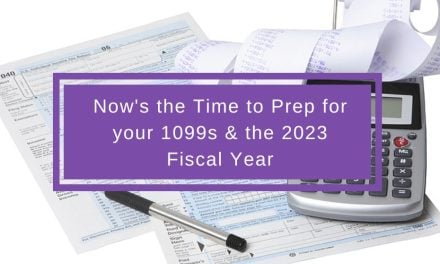
The current seller’s market makes it much more difficult to get a deal and gives investors less room to negotiate. With plenty of buyers and not enough properties on the market, sellers can be choosy about which deal they accept.
As an investor, aside from making competitively priced offers, you’ll need to learn to negotiate successfully to gain a leg up on the competition. If you don’t know how to negotiate in a seller’s market, the seller probably won’t even entertain your deal.
Make an offer with little or no contingencies
In a buyer’s market, buyers can get away with adding contingencies to their offers — the most common being home sale, financing and inspection contingencies. But in a seller’s market, it’s a different ballgame. Sellers are much less likely to accept an offer with contingencies and instead will move on to the next offer.
If you’re serious about buying the property, try to waive as many of these contingencies as feasible. Try paying cash or mostly cash to avoid involving a lender in the transaction. A May 2020 survey by the National Association of Realtors (NAR) found that 9% of contracts were terminated between March and May 2020 — 21% of those because of issues related to financing.
With fewer contingencies, the seller knows you are less likely to back out of the deal and may choose your offer over others — even if others are offering more money.
Don’t expect the seller to give away a lot
Similarly to not including many contingencies in your offer, don’t ask for too much in your offer. The seller has the upper hand and likely many more offers on the table, so it’s easy for them to move on to the next offer if yours comes across as too demanding.
In fact, you can even sweeten the deal by covering things the seller typically pays for at closing. Have a clear understanding of the closing costs you’re expected to pay, and offer to pay some of the sellers’ closing costs as well — such as transfer tax — to make your offer more attractive.
Forget about asking for the seller to remove that broken hot tub or replace the roof. If it’s the right deal for you, build in the cost of completing these upgrades on your own to make for a more clean deal. Traditional buyers may be nit-picky about small fixes or updates, so the seller will see your offer as one that will close quickly without much hassle and be more likely to approve it.
Make several offers
Don’t put all your eggs in one basket when investing in a seller’s market. Getting an offer accepted as a real estate investor can be a numbers game. The odds of your first (or second or third) offer being accepted are low. But the more offers you submit, the better chance you have of one being accepted. Don’t get too excited about any one property — this is a surefire way to pay too much for it or get into a bidding war. Instead, make more offers on other properties you like.
Use the 100:10:1 theory — for every 100 houses you look at, make 10 offers, and from those 10 offers, you may have one accepted. In the end, your goal is to add a cash flowing property to your investment portfolio. Yes, it takes time to submit 100 offers, but as you gain more experience, the process will go much faster, and you’ll be able to know quite quickly if the property is worth your time. Don’t be scared to submit lower offers if you don’t feel the property is worth what the seller is asking — even in a seller’s market. In fact, a seller’s market can sometimes cause sellers — especially those listing as a for-sale-by-owner (FSBO) to overprice their home.
Other buyers may also figure this out and not even bother submitting an offer, leaving you as the lone bidder. Even in a buyer’s market, real estate investors are used to making a lot of offers. This is especially important in a seller’s market. The important part of this equation is that, in the end, you’ve come out on top with an income-generating investment property. It’s also essential to know your market and adjust your offers accordingly. You may have more luck in metros where inventory is higher and there are fewer buyers, rather than red hot seller’s markets.
Find off-market properties
Off-market properties are those you won’t find on any local multiple listing service (MLS), Zillow or public advertising. Instead, you can find them through public records, direct mail, social media, wholesalers, or your real estate agent. Off-market properties are your best bet to negotiate, as they haven’t been marketed yet to the masses. There’s more competition, and sellers may be looking to avoid the work of putting the home on the market and a quick closing.
Many investors also “drive for dollars” — they drive through neighborhoods they love looking for distressed or unkempt properties and contacting the owner to ask if they’re looking to sell. Distressed properties can often be a sign that the owner is overwhelmed and doesn’t have time for repairs or regular maintenance. As a result, they may be looking to offload the property.
Set your limits
Having your property goals laid out before you start looking is key. Determine what type of property you are looking for and the absolute maximum amount you are willing to spend. Then set cash flow or income goals. Experienced investors may go for any property that cash flows. Newer investors may be more specific and manageable — looking for a single-family home in a class B neighborhood, for example. Before you enter a bidding war, set the absolute maximum you’re willing to spend, and don’t go above it. You might lose out on a property, but it’s not worth spending way more than you wanted.
Know exactly what you’re looking for in an investment property, and stick to it.
Get pre-approved
If you know you’re going to be buying soon, secure a pre-approval letter from your lender by submitting information about your income, other debts, and employment. You’ll also need to give them permission to run your credit score. This pre-approval shows the seller that you’ve already started the process, and it won’t be difficult for you to be approved for the mortgage to buy their home. Be aware that your pre-approval may last for just 60-90 days depending on your lender. You can easily renew the pre-approval after that point, but it will likely result in another credit pull on your credit report, which could negatively affect your credit score — although only by a few points.
If you’re getting your loan from a private lender, it’s best to already have an idea of how that loan might work before finding a property you want to buy. They are many types of investment property loans, and you can get creative in how you finance the home.
Get a good deal in a seller’s market
In a time when there are more buyers looking for homes than are available, you must be willing to make some concessions. Falling in love with any specific property will result in overpaying for it. And don’t just expect a deal to land in your lap. Make lots of offers, get quicker at determining what fits your buying criteria, and make things easy on the seller, and you’ll have better luck in having an offer accepted.






Too much of this article comes from a buyers perspective. And a sellers market I wanted to know information that the seller should consider about these offers that buyers put forth, the contract is signed and then everything changes i.e. now I need an appraisal, now I need an inspection now I need pest inspection now I need foundation engineering inspection now I asked for an extension on my offer because appraisals are backed up. Meanwhile the house is off the market no one is being shown it no one’s making another offer, this is quite a scam realtors have going for themselves.
Thanks for sharing such a useful post.
You are very welcome! Glad it you found it useful.